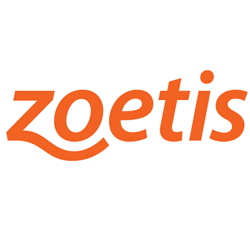Therapy
For cortisol deficiency, a small daily dose of glucocorticoids is recommended. Many dogs require doses <0.1 mg/kg/day of prednisone or prednisolone, and 0.25 mg/kg/day should be enough to manage all clinically stable dogs with HA long term. Other glucocorticoids are acceptable, and the dose should be calculated on a prednisone-equivalent basis. The daily dose should be doubled or tripled before known stressful events.
Dose should be further adjusted based on clinical signs and side effects. Dose should be increased when a dog shows clinical signs of Addison’s disease, such as anorexia, lethargy, vomiting, diarrhea, hematochezia, and melena. Dose should be decreased when the dog has side effects of glucocorticoid administration including polyuria/polydipsia, polyphagia, panting, muscle wasting, elevated ALP, or hair loss.
Patients with hyperkalemia and/or hyponatremia require mineralocorticoid supplementation. The labeled dose of desoxycorticosterone pivalate (DOCP) is 2.2 mg/kg given intramuscularly or subcutaneously, but research has demonstrated efficacy with lower doses.59,60 Starting doses of 1.1–1.5 mg/kg may be appropriate in most cases.61,62
The dose and the dosing interval are determined by electrolyte monitoring. Check electrolyte levels 10–14 days after injection and again 25 days after injection. If hyperkalemia or hyponatremia are persistent, the dose is typically increased. If electrolytes are normal, the dose may be gradually decreased with monitoring. If the dose is already low, extending the dosing interval to 28–30 days is reasonable.60 If DOCP cannot be used, consideration can be given to using fludrocortisone.
Clinical Tips
- Clients as well as veterinary health care professionals can learn to administer subcutaneous injections. Once a stable dose and dosing interval are achieved, monthly DOCP injections may be administered by someone other than the veterinarian.
- Other health care team members may serve as the primary client educators regarding symptoms of illness and side effects.
- Routine biannual health care visits are still encouraged.








